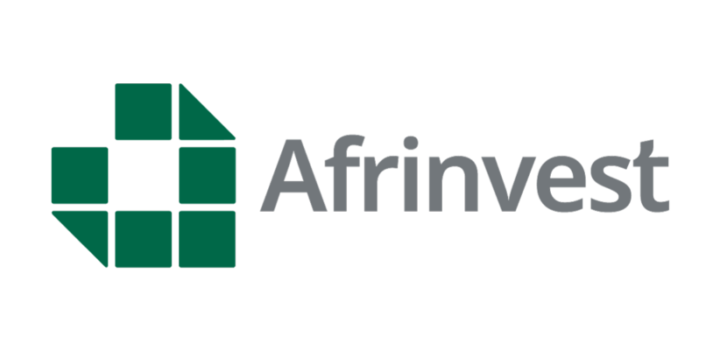Nigeria’s ambition to achieve a $1 trillion economy by the end of the decade will require a minimum of 21.9% annual economic growth, with an exchange rate of about N1,500 to the US dollar, according to projections from Afrinvest, a leading investment and financial advisory firm. The projection underscores both the scale of the country’s economic aspirations and the structural hurdles that must be overcome to realize this target.
Afrinvest’s report highlighted that while the $1 trillion target set by the Federal Government is feasible in theory, the reality on the ground points to significant challenges. Nigeria’s current economic growth trajectory, coupled with prevailing inflationary pressures, high interest rates, foreign exchange instability, and infrastructural deficits, suggests that without sweeping reforms, the target may remain aspirational rather than achievable.

The advisory firm explained that the path to a $1 trillion economy would not only demand aggressive growth but also a rebalancing of macroeconomic fundamentals. With Nigeria’s GDP currently estimated at around $472 billion, bridging the gap will require doubling economic output within a short timeframe. This will necessitate reforms in key sectors such as energy, agriculture, manufacturing, technology, and finance, alongside deliberate efforts to boost investor confidence and foreign direct investment inflows.
Afrinvest also emphasized the exchange rate factor in Nigeria’s economic calculations. With the naira hovering at N1,500/$, the strength or weakness of the local currency will play a crucial role in determining the dollar value of Nigeria’s GDP. A weaker currency, though supportive of export competitiveness, may erode the economy’s dollar valuation unless matched by substantial real output growth. Conversely, a stronger and more stable naira would make it easier for Nigeria to reach the trillion-dollar milestone, provided inflation is also tamed.
The report comes amid ongoing reforms by the Federal Government to stabilize the economy. Initiatives such as the removal of fuel subsidies, unification of exchange rates, and efforts to increase non-oil revenue are aimed at improving fiscal balance and creating a more sustainable economic foundation. However, these measures have triggered short-term pain, particularly in the form of high inflation, which currently sits at multi-decade highs.
Afrinvest noted that Nigeria’s inflationary pressures must be urgently addressed if the trillion-dollar target is to be realistic. Persistent inflation not only erodes consumer purchasing power but also discourages investment and savings, two critical elements for sustainable economic expansion. The firm recommended that the government focus on food security, energy stability, and infrastructure as immediate priorities to bring inflation under control and spur productivity.
The advisory firm further warned that Nigeria’s current debt dynamics pose another challenge. Rising debt service costs relative to government revenue have limited fiscal space for investments in infrastructure and social programs. Without a shift toward more sustainable borrowing, improved revenue mobilization, and efficient spending, the fiscal framework may not support the scale of investment needed to sustain high growth.
Another key area highlighted by Afrinvest is the need for massive private sector involvement. The firm stressed that government efforts alone cannot drive 21.9% growth annually. Instead, policies must be crafted to unlock private sector investment, encourage innovation, and deepen industrialization. Access to credit for businesses, removal of bottlenecks in logistics, and a more predictable regulatory environment were identified as catalysts for accelerating growth.
Furthermore, Afrinvest pointed to the global economic environment as an external factor influencing Nigeria’s chances of hitting the $1 trillion milestone. With volatile oil prices, shifting global trade dynamics, and rising interest rates in advanced economies, Nigeria must diversify its economy away from oil dependence. Non-oil exports, digital services, and regional trade integration under the African Continental Free Trade Area (AfCFTA) were listed as opportunities the country must harness.
Despite the daunting challenges, Afrinvest concluded on a cautiously optimistic note, suggesting that Nigeria has the potential to chart a path toward its goal if reforms are pursued consistently and boldly. Strong leadership, policy continuity, and a commitment to execution, rather than rhetoric, will be decisive factors.
For ordinary Nigerians, the prospect of a $1 trillion economy carries implications beyond statistics. If achieved, it could translate into job creation, improved infrastructure, better living standards, and enhanced global competitiveness. However, if pursued without structural reforms, the aspiration risks being overshadowed by worsening inflation, currency depreciation, and declining investor confidence.
Afrinvest’s projections serve as both a warning and a roadmap: Nigeria can indeed reach the $1 trillion target, but doing so will require unprecedented discipline, innovation, and collaboration between government, private sector, and global partners. The real test lies in whether the country can turn its vast potential into tangible growth that is inclusive, sustainable, and resilient against internal and external shocks.
Support InfoStride News' Credible Journalism: Only credible journalism can guarantee a fair, accountable and transparent society, including democracy and government. It involves a lot of efforts and money. We need your support. Click here to Donate
